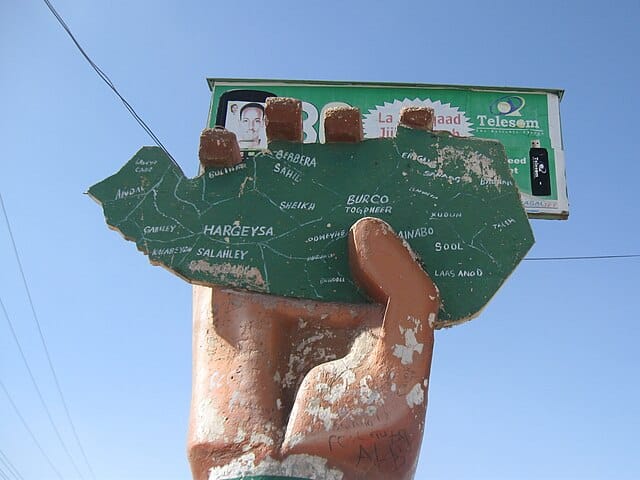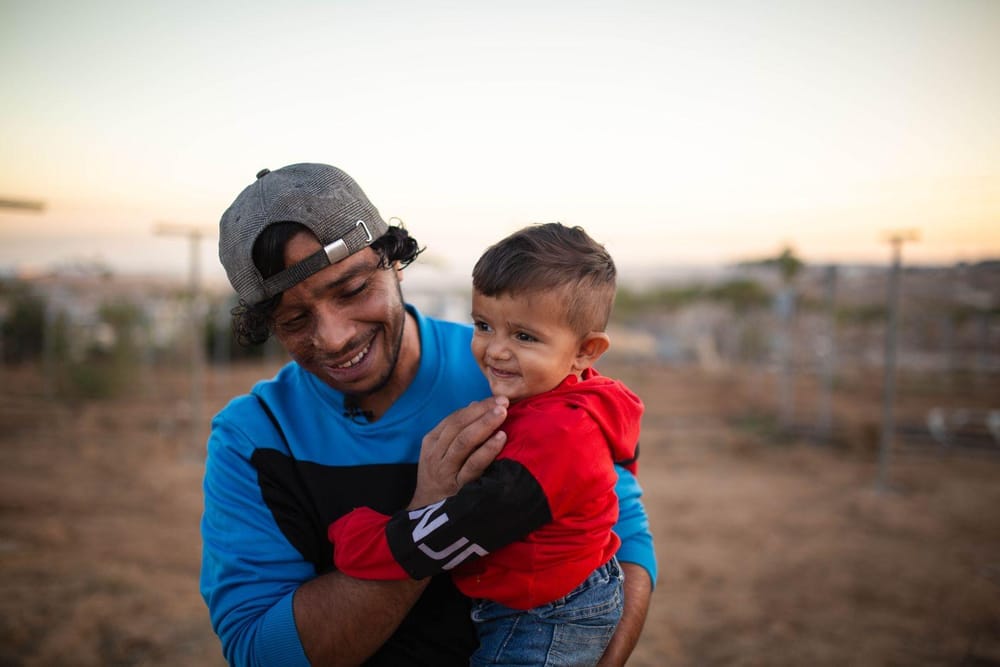
Speaking yesterday from a school lunch hall in Harlow, prime minister Keir Starmer again refused to call Israel’s war on Gaza a genocide.
Despite the location of his remarks, Starmer also declined to mention Israel’s programme of deliberate starvation and enforced famine, which has in recent days prompted the UN to refer to Gaza as “the hungriest place on Earth”. Over 2,700 children younger than five were diagnosed with acute malnutrition in the second half of May, a consequence of Israel’s inhumane 11 week aid blockade. Palestinians who try to access food from the two distribution sites of the Gaza Humanitarian Foundation – an organisation described as “a dangerous and politicised sham” by aid and humanitarian agencies, and which is now run by an atrocity-denying evangelical leader who is a former adviser to Donald Trump – are at serious risk of being murdered by Israeli forces as they queue.
When asked by Sky News what it would take for him to name it as a genocide, Starmer said that the government has been “absolutely clear that the situation as it is is utterly intolerable, and that’s why we’ve taken measures like the trading talks [that have been] stood down, the sanctions we’ve put in, but we’re working with allies to see what else we can do.”
Starmer’s public evasion of the question of genocide is nothing new, though the government’s lawyers have actually had to assert their position in court (surprise, in a demonstrably flawed analysis, they declared it was not a genocide).
While the headlines will rightfully focus on what he didn’t say to Sky, the words he did use are also worthy of attention.
Starmer’s use of the word “intolerable” was not an impromptu utterance. The prime minister began invoking the intolerability of Israel’s aid blockade in mid-May, perhaps in an effort to freshen up the descriptors he uses in place of the ones that most accurately describe Israel’s actions. He first referred to the situation in Gaza as “simply intolerable” on 14 May while responding to a question from Lib Dem leader Ed Davey. Five days later, the joint statement by the UK, France, and Canada asserted that “The level of human suffering in Gaza is intolerable.” Starmer stuck to this line in the Commons on 4 June, saying that “Israel’s recent action is appalling and, in my view, counterproductive and intolerable”, before repeating it again in the cafeteria the next day.
Starmer’s insistence on this phrasing, more so than his refusal simply to use the word the genocide, reveals just how far there is to go in shifting this government.
Tolerance suggests a specific relational dynamic. As theorist Wendy Brown argues, “tolerance is an act of power” that is conferred or extended downward by the dominant, civilised actor. To call something intolerable, then, is to deny such license to the object of tolerance according to the same dynamic.
Starmer is of course right to criticise Israel harshly. The problem is that this language positions the UK as an external and superior subject to its object, the kind of subject that can, and does, extend and retract tolerance when it likes.
The reality is entirely the opposite. The UK is not an outside observer to the genocide in Gaza, but an active participant. It has no right to a position of authority or superiority, and all condemnation of Israel must double as condemnation of itself as an enthusiastic partner in the destruction of a civilisation.
Yet it’s clear that the UK has no intention of taking accountability for its actions. Earlier this week, Jeremy Corbyn presented a bill in parliament calling for an independent inquiry into the UK’s involvement in Israel’s war on Gaza. However, the Deputy Speaker ensured the bill passed its first reading in such a manner as to prevent an actual vote, in effect shielding MPs from having to take a public stance on the matter.
The Gaza (Independent Public Inquiry) bill has been placed last of 25 private members’ bills on the 4 July Commons order paper, giving it practically no chance of a second reading on the day. Should it not be debated before the end of this parliamentary session it will effectively disappear. Early indications signal that this may be the intention. On the topic of an investigation into British sale of F-35 parts to Israel, Hamish Falconer, UK minister for the Middle East, stated earlier in the day “I do not see that this could be any further scrutinised and litigated or what an independent inquiry on the F-35 parts would achieve.”
Beyond this, Starmer’s assertion that the UK is actually retracting tolerance is itself a lie. One week after the foreign secretary announced that the UK was suspending trade negotiations with Israel, the government sent an envoy to Israel to promote trade under the existing deal. This is a well-documented pattern, most recently seen in the revelations that the UK appears to have continued sending substantial military goods to Israel after last autumn’s export bans.
Starmer continues to engage the world as though he resides outside of it, while Palestinians in Gaza are murdered by famine, bombs, and drones with his government’s active support. Every day he fails in his duty to Palestinians in Gaza, the West Bank, and here in the UK.
Yesterday, the British Palestinian Committee and UK Gaza Community held a press conference demanding that the government take concrete steps to stop Israel’s starvation of their family members in Gaza. I’ll end with the words of Ali Mousa, a Palestinian from Gaza now living in the UK, who was speaking alongside his sister who joined via video link:
“My sister Hend is still there. Still living through the genocide and starvation. And today I hope the difficult internet service will allow her to be present. I want to speak directly to her. We are here for you, and we will never leave you even if the whole world does. I’m endlessly proud of you, and I miss you with all my heart. Your presence in Gaza today does not make me worried or sad, it makes me believe that someone is still there to tell the truth from inside the storm. I will leave the rest of the story for you from inside Gaza, because your voice is loud and true.
“We Palestinians don’t love death, we love life, but we have learned to live life on the edge of the impossible. We are not asking for pity, we are demanding justice. We don’t need the world to save us, we just need them to stop funding our killers. And we demand that governments take real action on the ground, not just press statements. In the end, Gaza is not just a political issue. Gaza is not just a humanitarian crisis. Gaza is the biggest slaughterhouse on earth. And if this does not shake your human conscience, then ask yourself what remains of your humanity?”▼
Evan Robins is an editor at Vashti.
To donate once or monthly, click here.
Author

Evan Robins is an editor at Vashti.
Sign up for The Pickle and New, From Vashti.
Stay up to date with Vashti.



